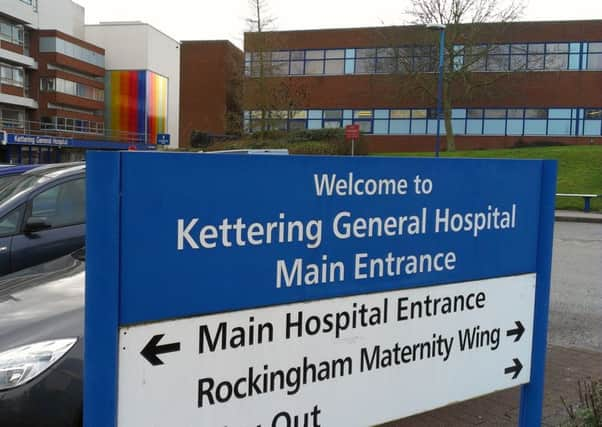Cancelled operations in '˜black alert' cost KGH almost £170,000


A Freedom of Information request by the Northants Telegraph revealed that 116 operations were cancelled while the hospital was on ‘black alert’ between November 2016 and January 2017.
The cost of cancelling these operations was £169,731, with all of them rearranged to a new date.
Advertisement
Hide AdAdvertisement
Hide AdKettering General Hospital’s chief operating officer, Rebecca Brown, said: “The trust would like to apologise to all patients who have had their operations rearranged to a new date because of emergency pressures on the trust this winter.
“We fully appreciate how disruptive and distressing this can be.
“This has been our busiest winter on record.
“In the period from November to January we had 710 more A&E attendances than in the same period last year (an increase of 3.4 per cent) and an increase of 649 admissions to hospital beds (an increase of 7.7 per cent compared to the same
period last year).”
The hospital put out several appeals over the winter period urging people not to visit A&E unless it was an absolute emergency.
Advertisement
Hide AdAdvertisement
Hide AdBut with A&E overflowing, operations had to be cancelled to free up beds.
Miss Brown added: “At times this has led to short periods of very intense pressure on the hospital, ‘black alerts’, where we have to rearrange some routine operations because we have needed to use some surgical beds to meet the needs of our emergency patients.
“We rearrange all operations cancelled on the day of surgery within 28 days and reschedule others (if we cancel before then) as soon as possible.
“We are working very closely with our partners in the health community to find ways to effectively reduce A&E attendance where other suitable alternatives exist and speed up discharge back into the community as soon as our patients are medically fit to leave hospital.”